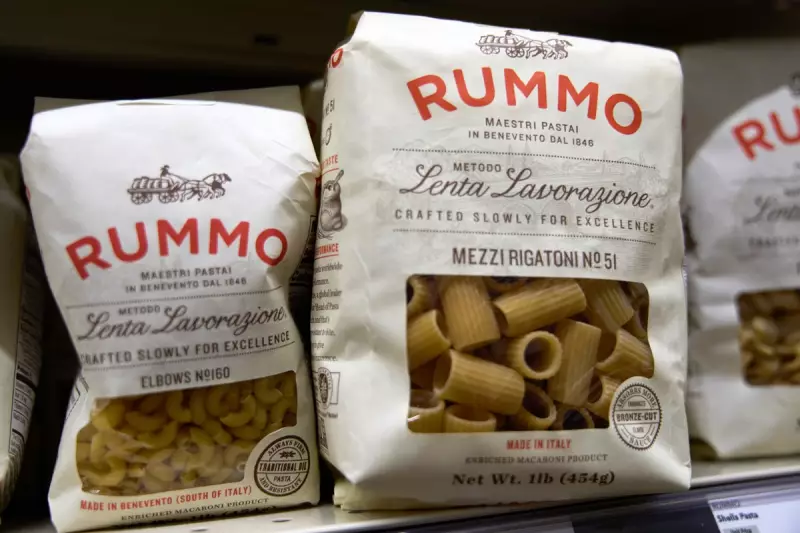
Transatlantic Pasta War Erupts Over Proposed 107% US Tariff
The United States Commerce Department has ignited a transatlantic trade dispute by threatening to impose punitive tariffs of up to 107% on pasta imported from Italy. This move follows an antidumping review initiated in 2024, alleging that Italian producers have been selling their products in the US market below fair value, thereby undercutting American competitors.
The proposed 92% antidumping duty would compound an existing 15% tariff on European exports established during the Trump administration. For Italy's renowned pasta sector, this one-two punch could prove devastating, with thirteen producers directly in the line of fire.
Italian Industry and Political Leaders Rally Against 'Senseless' Measures
The potential tariffs have sent shockwaves through Italy, where pasta exports contribute significantly to the national economy. Data from the farmers' association Coldiretti reveals that the US accounts for approximately 15% of Italy's €4 billion (£3.4 billion) in annual pasta exports, making it the industry's second-largest market after Germany.
Margherita Mastromauro, president of the pasta makers sector of Unione Italiana Food, has forcefully rejected the dumping claims. She stated that Italian pasta already commands premium prices in the US, surpassing the cost of American-made alternatives, which fundamentally undermines the Commerce Department's argument.
Italian Agriculture Minister Francesco Lollobrigida confirmed in mid-October that the government is coordinating with the European Commission on diplomatic and legal efforts to counter the US sanctions. EU Trade Commissioner Maros Sefcovic has publicly condemned the proposed levy as 'unacceptable', citing a lack of substantive evidence.
Commerce Department Cites Non-Cooperation in Investigation
The investigation by the US Commerce Department focused on Italy's two largest pasta exporters, La Molisana and Garofalo, as primary respondents. According to an official statement, the department determined that these companies presented incorrect information or withheld data, significantly impeding its analysis.
White House spokesperson Kush Desai elaborated, stating, 'After they screwed up their initial responses, the Commerce Department explained to them what the problems were and asked them to fix those problems; they didn’t. And then Commerce communicated the requirements again, and they didn’t answer for a third time.' La Molisana declined to comment when contacted, while Garofalo did not respond to requests.
Facing these alleged deficiencies, the department applied its 92% duty estimate to these two firms and extended it to eleven other Italian pasta companies. The sanctions, if finalised, would be applied retroactively to imports over the 12 months through June 2024. The final decision is scheduled for 2 January, with a potential 60-day extension.
'A Deal Killer' for Producers and US Importers
Industry experts warn the tariffs would be catastrophic. Lucio Miranda, president of Export USA, stated bluntly that a 107% duty 'would definitely kill this flow of export'. He emphasised that such a cost cannot simply be passed on to consumers without destroying demand.
This sentiment is echoed by Italian producers. Cosimo Rummo, CEO of the historic Pasta Rummo, expressed outrage at the threat to his company's €20 million annual exports to the US. 'These tariffs are completely senseless,' he said. 'Who would ever buy a pack of pasta that costs 10 dollars, the same price as a bottle of wine?'
The uncertainty has also alarmed US importers. Robert Tramonte, owner of The Italian Store in Arlington, Virginia, sought assurances from his supplier. While he was relieved to find sufficient inventory to maintain prices until Easter, he fears for the future authenticity of his offerings, dismissing American-made pasta as an inferior substitute that 'just didn’t taste the same'.
The complaint that triggered the investigation came from US-based companies 8th Avenue Food & Provisions (owner of Ronzoni) and Winland Foods (owner of brands including Prince and Wacky Mac). The Commerce Department maintains this is a routine review, consistent with several others conducted on Italian pasta since 1996.





